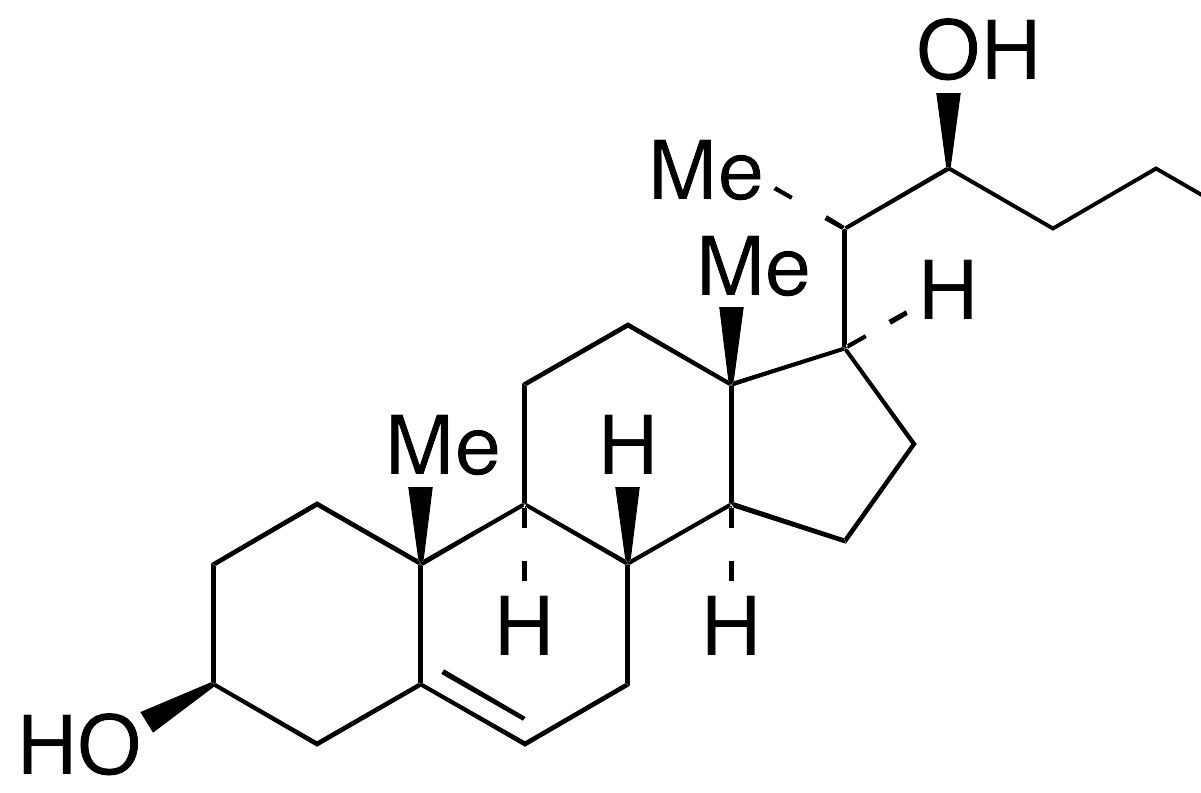
20s-Hydroxycholesterol might sound like a mouthful, but it's a fascinating molecule with a big role in our bodies. This compound, a type of oxysterol, is derived from cholesterol and plays a part in various biological processes. Why should you care about 20s-Hydroxycholesterol? Because it influences everything from brain function to immune response. Understanding this molecule can shed light on how our bodies maintain balance and health. In this post, we'll dive into 30 intriguing facts about 20s-Hydroxycholesterol, revealing its significance and the latest research. Get ready to discover how this tiny molecule makes a huge impact!
Key Takeaways:
- 20s-Hydroxycholesterol, a special type of cholesterol, plays important roles in the body, from regulating cholesterol levels to influencing immune responses and even potentially fighting cancer.
- Research on 20s-Hydroxycholesterol is ongoing, with scientists exploring its impact on brain health, its potential as a biomarker for diseases, and its role in developing new treatments for various conditions.
What is 20s-Hydroxycholesterol?
20s-Hydroxycholesterol is a fascinating molecule with a variety of roles in the body. It’s a type of oxysterol, which means it’s an oxidized form of cholesterol. Here are some intriguing facts about this compound.
-
20s-Hydroxycholesterol is produced in the body through the enzymatic action of cholesterol 20-hydroxylase.
-
It plays a crucial role in the regulation of cholesterol homeostasis.
-
This molecule is involved in the biosynthesis of steroid hormones.
-
20s-Hydroxycholesterol can act as a signaling molecule in various cellular processes.
-
It has been found to modulate immune responses.
Biological Functions of 20s-Hydroxycholesterol
Understanding the biological functions of 20s-Hydroxycholesterol can provide insights into its importance in health and disease.
-
It influences the differentiation of certain types of cells, including immune cells.
-
20s-Hydroxycholesterol is involved in the regulation of gene expression.
-
It can act as a ligand for liver X receptors (LXRs), which are important in lipid metabolism.
-
This oxysterol has been shown to affect the function of the central nervous system.
-
20s-Hydroxycholesterol is implicated in the regulation of inflammatory responses.
Health Implications of 20s-Hydroxycholesterol
The presence and levels of 20s-Hydroxycholesterol in the body can have significant health implications.
-
Elevated levels of 20s-Hydroxycholesterol have been associated with certain neurodegenerative diseases.
-
It may play a role in the development of atherosclerosis.
-
20s-Hydroxycholesterol has been studied for its potential anti-cancer properties.
-
It can influence the progression of autoimmune diseases.
-
20s-Hydroxycholesterol levels can be affected by diet and lifestyle.
Research and Discoveries
Ongoing research continues to uncover new aspects of 20s-Hydroxycholesterol and its effects on the body.
-
Studies have shown that 20s-Hydroxycholesterol can cross the blood-brain barrier.
-
Researchers are exploring its role in brain development and function.
-
20s-Hydroxycholesterol has been found to interact with various cellular receptors.
-
There is evidence suggesting it may protect against oxidative stress.
-
20s-Hydroxycholesterol is being investigated for its potential in therapeutic applications.
20s-Hydroxycholesterol in Disease
The role of 20s-Hydroxycholesterol in disease is a growing area of interest for scientists and medical professionals.
-
It has been linked to Alzheimer’s disease.
-
20s-Hydroxycholesterol may contribute to the pathogenesis of multiple sclerosis.
-
It is being studied for its role in Parkinson’s disease.
-
20s-Hydroxycholesterol levels are altered in certain types of cancer.
-
It may have a role in metabolic disorders.
Future Directions
The future of 20s-Hydroxycholesterol research holds promise for new discoveries and potential treatments.
-
Scientists are developing new methods to measure 20s-Hydroxycholesterol levels in the body.
-
There is ongoing research into its potential as a biomarker for various diseases.
-
20s-Hydroxycholesterol is being explored for its therapeutic potential in neurodegenerative diseases.
-
Researchers are investigating its role in aging and age-related diseases.
-
The development of new drugs targeting 20s-Hydroxycholesterol pathways is an exciting area of research.
Final Thoughts on 20s-Hydroxycholesterol
20s-Hydroxycholesterol, a fascinating molecule, plays a crucial role in various biological processes. From its involvement in cholesterol metabolism to its impact on cell signaling, this compound is essential for maintaining health. Researchers continue to uncover its potential in treating diseases like cancer and neurodegenerative disorders. Understanding its functions can lead to breakthroughs in medicine and health science.
By exploring the facts about 20s-Hydroxycholesterol, we've gained insights into its significance and potential applications. Whether you're a student, a researcher, or just curious, knowing about this molecule can broaden your understanding of biochemistry and its implications. Keep an eye on future studies, as they may reveal even more about this remarkable compound.
Frequently Asked Questions
Was this page helpful?
Our commitment to delivering trustworthy and engaging content is at the heart of what we do. Each fact on our site is contributed by real users like you, bringing a wealth of diverse insights and information. To ensure the highest standards of accuracy and reliability, our dedicated editors meticulously review each submission. This process guarantees that the facts we share are not only fascinating but also credible. Trust in our commitment to quality and authenticity as you explore and learn with us.
